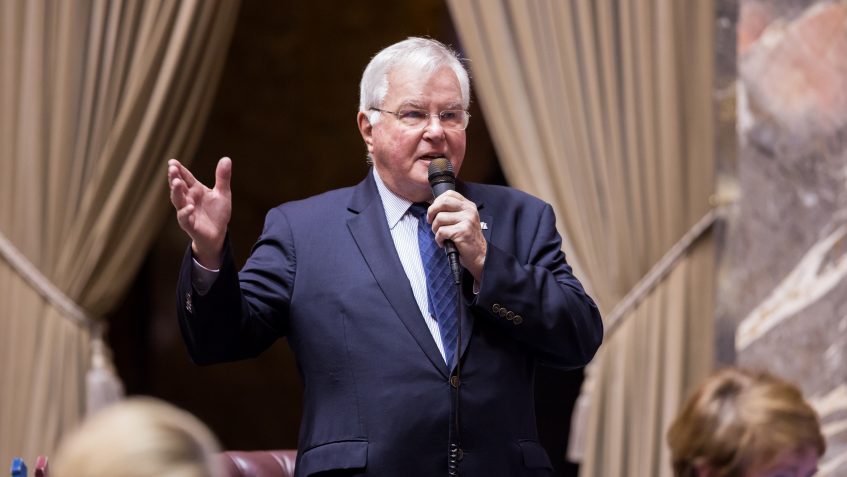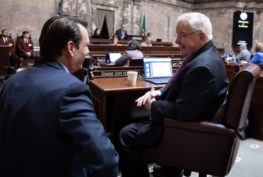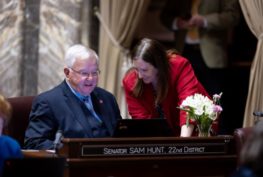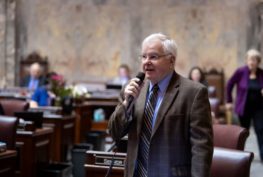Dear Neighbors,
Today’s e-newsletter focuses on some key policy achievements the Legislature made this last session to increase the accessibility and stability of housing. We have taken to heart the feedback of constituents regarding the housing affordability crisis and are fighting hard to ensure housing is accessible for everyone in Washington.
Daily we see housing problems. It seems we cannot build houses, apartments, or condos quickly enough. And the houseless crisis continues. Our local governments, churches, and nonprofits struggle to meet these needs, but resources are not adequate. State funds will help, but even with the funds described here, the problem continues.
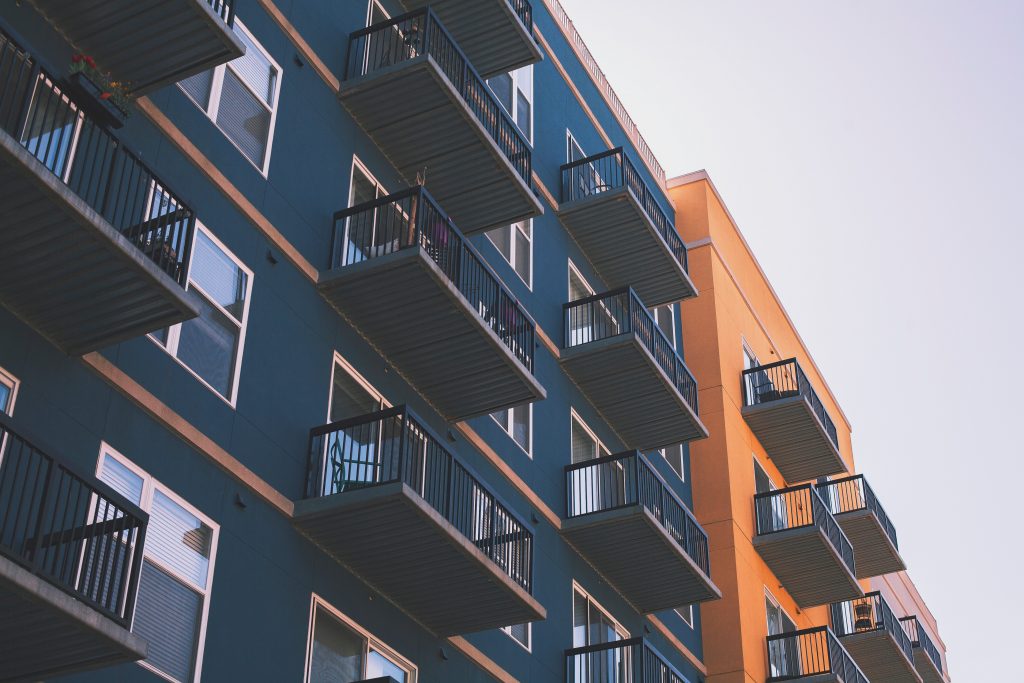
Access to Housing
We increased access to housing services and invested in building up the supply of accessible and affordable housing.
Housing assistance
We expanded services for homeless youth and unaccompanied young adults (HB 1657) and approved a pilot program to provide housing vouchers to families in the child welfare system whose main barrier to reunification is the lack of appropriate housing (SB 5718).
Increasing the supply of accessible housing
We passed HB 1219 and HB 1406, which grant authority to cities and counties to use funds from certain local taxes for affordable housing projects and to combat homelessness. This authority will allow local governments to access more immediate funding to build local housing. I look forward to seeing how our local governments apply for and leverage funds from these programs.
We also adjusted zoning rules to empower faith communities to contribute to housing stability, allowing increased density to build affordable housing on property owned by religious organizations (HB 1377).
Additionally, the capital budget added $175 million in affordable housing loans and grants through the Housing Trust Fund, including:
- $10 million for high-quality modular housing to transition people out of homelessness quickly
- $35 million for supportive housing and case management services for people living with behavioral health disorders
- $10 million for competitively awarded grants for state matches on private contributions to fund affordable housing
- $10 million for housing preservation grants
- $5 million for housing veterans
- $5 million for housing to serve people with disabilities

Keeping People in Their Homes
We passed several bills this session that keep people in their existing homes, which is just as important as building new housing when combatting homelessness.
Property taxes
SB 5160 gives a property tax break to seniors, people with disabilities and veterans on limited incomes. This will prevent people from being priced out of their homes as property taxes rise along with property values.
Tenant protections
Eviction reform legislation, SB 5600, was enacted to extend the notice time for evictions from 3 to 14 days. This aligns our state with national norms and gives tenants time to find money to pay their rent. For those who live paycheck to paycheck, this extended notice period could mean the difference between staying in their homes or being out on the street. This legislation also allows judges to use their discretion in nonpayment of rent cases to consider factors beyond the tenants’ control and allows landlords to access a mitigation fund in some cases.
HB 1440 increased the number of days in advance that landlords of non-subsidized tenancies must notify tenants of rent increases. This will help tenants prepare for rent increases and assess their options for addressing them. The notice period increased from 30 to 60 days, but remains 30 days for subsidized tenancies where rent is based on household-specific circumstances.
Manufactured/mobile homes
HB 1582 added protections for tenants to the Manufactured and Mobile Home Landlord Tenant Act, like increasing the notice to pay or vacate period from 5 to 14 days and allowing a court to limit the sharing of information about an eviction notice.
SB 5183 increased access to the Manufactured and Mobile Home Relocation Assistance program by expanding eligibility. This program helps with the costs of relocating and securing other housing when a mobile home park closes.
That is all for now; thanks for reading! Here in the Senate we are hard at work on legislation to promote the interests of the people of Washington state. I’d like to hear from you about the issues that are important to you. My office welcomes you to call, write, or stop by to give us your input.
Sincerely,
Sen. Sam Hunt
